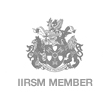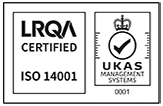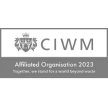
The spotlight is well and truly cast on waste management and its intrinsic link to the environment. In 2018, the UK government announced a 25 Year Environment Plan, focused on creating a circular economy with less dependence on raw materials and better handling of waste. But how well is the UK equipped to handle the challenges facing the waste industry?
The challenge of non-recyclable materials
There are still plenty of things that cannot be recycled. And these are the items that can end up in landfills, which in turn, can contaminate the environment. This includes (but is not limited to) food waste, nappies, Styrofoam, and some plastics and containers. Some items need disposing of in a specific way, such as electricals and batteries that contain dangerous chemicals. A specialist WEEE facility should always dispose of electrical items, but that isn’t always the case.
The challenge of recycling
Recycling rates surged between 2001 and 2013, but since then, rates have plateaued. To further reduce waste destined for landfill, the government has proposed more extensive food waste collections, to be universal by 2023. This means food waste can be treated through Anaerobic Digestion instead of going to landfill where it produces greenhouse gases.
The challenge of fly-tipping
Disposing of waste, particularly a high volume, is perceived to be costly, and so fly-tipping continues to be an issue. In 2017 and 2018, there were just under one million fly-tipping incidents in the UK. When there’s a large amount of rubbish to dispose of, hiring a skip can be the most responsible and environmentally-friendly way to do so.
The challenge of landfill sites
More Energy from Waste (EfW) facilities, like ours at Rabbit, are needed to cope with waste demand and create greener energy. Ours is one of around 40 EfW facilities in England and the government is looking to support more in the future.
The challenge of plastic exports
Two-thirds of the UK’s plastic packaging waste is sold as a commodity and exported to be recycled. But some countries, including China, have stopped accepting British plastic waste because of the high contamination rates and poor quality. While contamination is a significant issue of its own, there are also questions about whether exported recyclables are being properly recycled, or simply stored or burned. The government has set out a strategy to promote UK-based recycling to reduce sending waste abroad.
To find out more about skip hire in West Sussex and our Energy from Waste Facility, contact Rabbit. Reach us on 01903 762020 or email info@rabbitgroup.co.uk.




